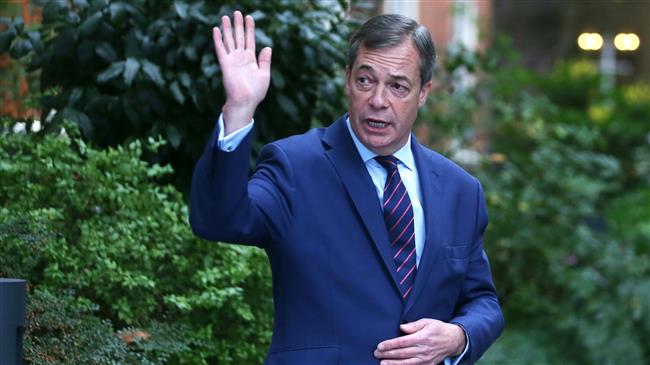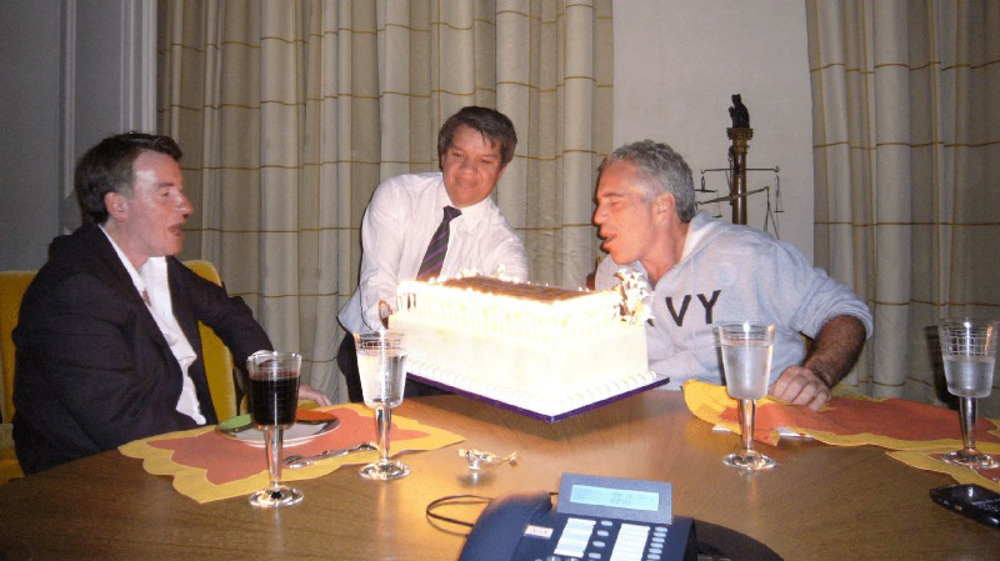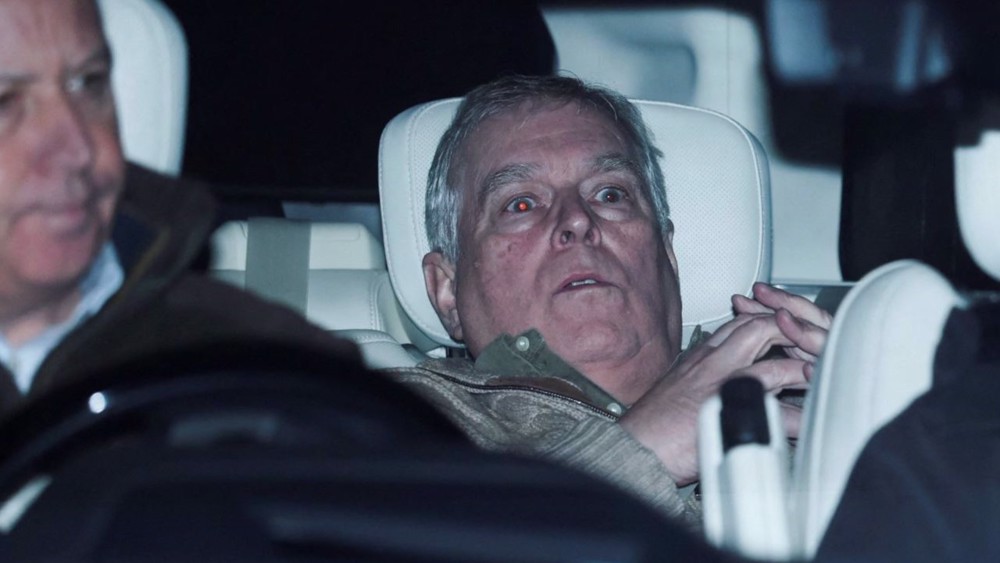Farage resigns from UKIP over party’s anti-Muslim policies
Former UK Independence Party (UKIP) leader Nigel Farage has announced his resignation from the right-wing party after 25 years over its anti-Muslim positions.
Farage handed in his notice on Tuesday and said the party had become unrecognizable due to its “obsession” with the anti-Muslim policies under current leader, Gerard Batten.
“And I – with a very heavy heart, given how much I’ve cared for this party, the people within it – have reached, I think, a very sad decision, certainly very sad for me, that I simply can’t go on with it,” Farage said on a radio show.
“I don’t recognize the party as being the one I helped to found and fought for all of those years,” he added. “I believe the brand has been so damaged, so tarnished, that it’s not able to pick up and won’t be able to pick up the political opportunity that’s there, staring it in the face. So with very great reluctance I have, as of now, resigned my membership with UKIP.”
Farage played a key role in leading the successful "Brexit" push for the UK to leave the European Union, but he has become critical of UKIP since he stepped down from leadership.
The Brexit campaigner blasted Batten, saying that the current party leader was “obsessed with the issue of Islam," as well as far-right activist Tommy Robinson, who was recently appointed as an adviser.
“Things couldn’t be better for UKIP, but unfortunately we’ve gone in this direction of street activism and turning a blind eye to extremist politics,” he said, pointing to an anti-Brexit demonstration set for next Sunday in London at which Batten and Robinson will speak.
“The image that will give of what Brexit stands for is something that our enemies will use against us, for perhaps many years to come," he said. "Damaging UKIP is one thing, damaging the Brexit cause is even worse."
Batten had previously libeled Islam as a “death cult” and called for radical policies against its followers, including Muslim-only prisons.
Anti-Muslim hate crimes and incidents have been steadily rising across the United Kingdom in recent years, particularly since the Brexit vote in 2016.
In October, the British government officially admitted a significant rise in hate crimes against religious minorities, especially Muslims, saying that such attacks had increased in number by almost 40 percent over the past two years.
Britain’s Home Office (interior ministry) attributed the spike in hate crimes against religious people to terrorist attacks in London and Manchester last year.
Terrorists linked to groups like Daesh, which used to wreak havoc in the Middle East with an alleged Islamic mission, claimed responsibility for attacks in Westminster and Manchester arena, which took place in March and May 2017 and killed dozens of people.
The ministry also said a referendum in June 2016 in which British voters decided for their country to leave the EU had a role to play while better police record keeping was also a factor.
US-allied fuel tanker attacked by Iran still burning in Strait of Hormuz: IRGC
Attacks on hospitals, schools ‘strike at life itself’: Pezeshkian
Iran’s attacks on US bases ‘legitimate’ response to source of aggression: Araghchi
IRGC targets US intelligence centers, military depots in 11th wave of attacks
US-Israeli attacks damage 5 hospitals, medical centers in Iran: MP
Unlike US, Iran prepared for a long war: Security chief
Missile sirens will never stop in Israeli-occupied territories, Iran warns
Leader’s martyrdom will drive Iran to greater dignity and victory: Senior cleric











 This makes it easy to access the Press TV website
This makes it easy to access the Press TV website